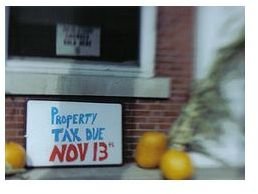Learn About How Homestead Tax Exemption Lowers Real Estate Taxes
What Are Homestead Tax Exemptions?
The dreaded property tax! Most counties allow us to make two payments and real estate taxes seem to rise all the time. Homestead tax exemptions can help you lower real estate taxes and each state has different laws on how they work. Every state in the US has adopted various types of homestead tax exemptions enabling homeowners to save at real estate tax time.
One homestead tax exemption is where the county in which you live allows you to remove part of the value of your home to save. For example, if your home is valued at $100,000, you can qualify for a set amount to be exempt from tax. In Texas for example, a house that is valued at $100,000 may qualify for a $15,000 homestead tax exemption. This means instead of paying real estate taxes on $100,000, you’ll pay on the lower value of $85,000.
This is the most popular type of homestead tax exemption and not all states and counties participate in this type of exemption. To find out what sort of homestead tax exemptions apply in your state, visit, Taxes By State.
Every homeowner has to be eligible for homestead tax exemptions, so how do you know if you qualify?
How to Qualify for Homestead Tax Exemptions
In most states, to qualify, you must meet one of the following requirements:
- You must have owned the home on January 1st in the tax year you are requesting the exemption.
- You must be 65 years of age or disabled. If you are 65 and disabled, the January 1st rule doesn’t apply.
- The home must be your principal residence.
- You are a veteran or a survivor of a veteran.
In other states you must be able to answer one of the above questions and,
- Be in a low or mid-income tax level as designated by your state.
- Use a percentage instead of a flat dollar exemption meaning instead of a set dollar amount that shelters part of the value of your home, a percentage is applied.
Flat dollar or fixed homestead tax exemptions often lose their value in the long run. For example, in Florida, the homestead tax is $25,000. Homes in Florida have increased in value by 59%, meaning a once $88,000 valued home is now worth $140,000 but the $25,000 flat dollar homestead tax has remained the same.
If you live in a state or county that applies a percentage for homestead tax exemptions, the percentage stays the same no matter how high your property is valued.
Who Foots the Bill?
Because county assessors determine the value of homes, if you are eligible for a homestead tax exemption and aren’t required to pay the full property tax, who foots the bill?
The answer to this question is, it varies. Some counties will help fund local governments to help them maintain the dollars needed to run their towns or cities. Other counties leave it up to the city or town to rework their budgets adjusting for less property taxes collected.
If the homestead property tax exemption is state-wide, the state helps to fund tax revenue losses in each county, city or town.
Beware of Scams
Unfortunately, there are some firms that attempt to make money from the homestead property tax exemption. What these firms do is tell you they will file for the exemption on your behalf for a fee. In every state, it is free to file for your exemption and if you don’t understand how to do it, your state or local revenue department can help you at no cost.
Other companies collect fees upfront and tell homeowners they are eligible for more than one homestead tax exemption. They may imply you will qualify for up to four or five exemptions. In most cases, this is not true and these firms often gear these scams toward the low-income or the elderly.
Homestead property tax exemptions can lower real estate taxes. While the most popular is sheltering part of the value of your home and paying taxes on a lower valuation, other exemptions include school exemptions, farm and land exemptions, and various county exemptions.
Check the Taxes By State website or call your county assessor, your accountant, or your state’s taxation and revenue department to find out which exemption you qualify for as a homeowner.
Photo credit: Property Tax Due by Xthylacine
